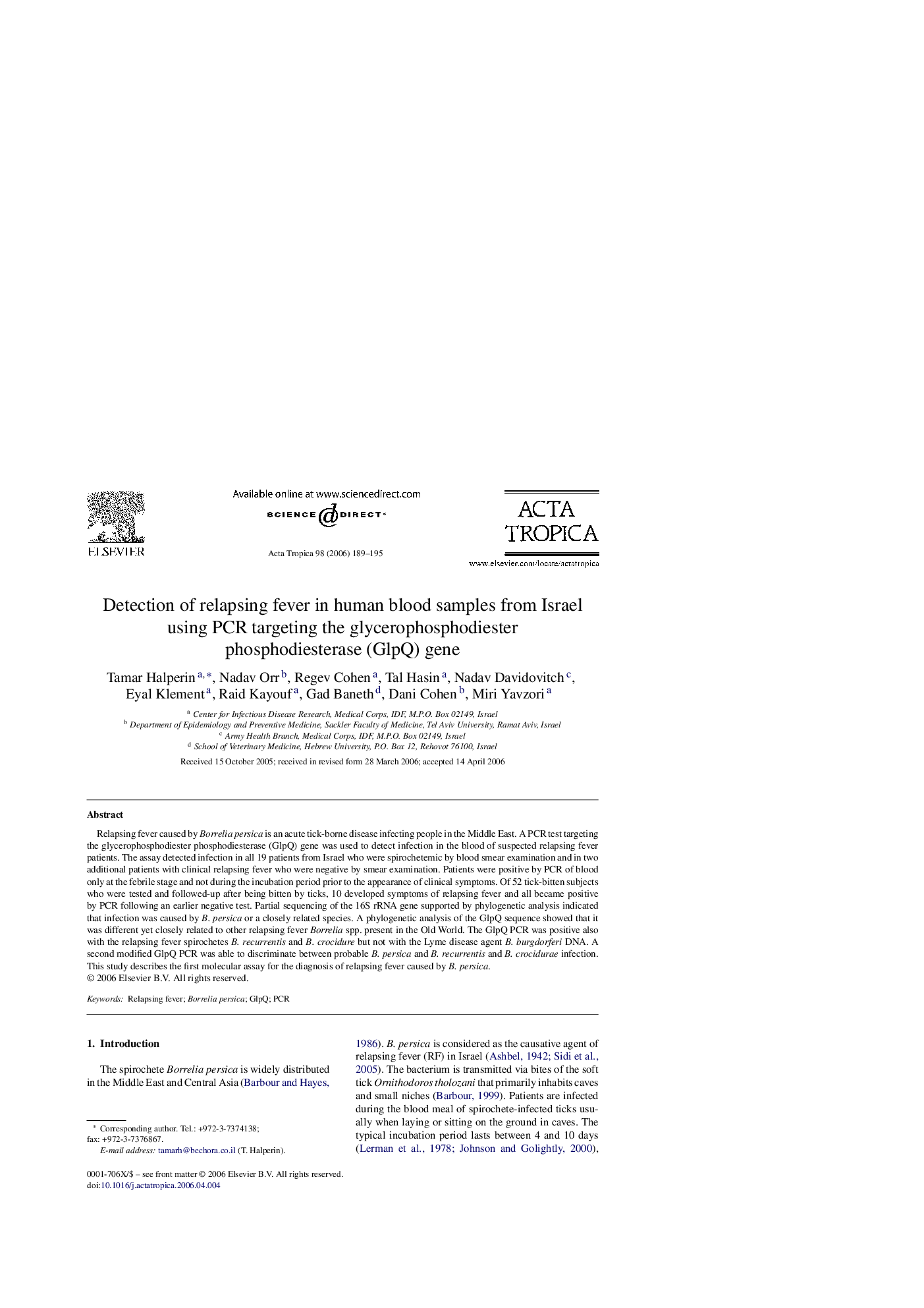| Article ID | Journal | Published Year | Pages | File Type |
|---|---|---|---|---|
| 3394724 | Acta Tropica | 2006 | 7 Pages |
Relapsing fever caused by Borrelia persica is an acute tick-borne disease infecting people in the Middle East. A PCR test targeting the glycerophosphodiester phosphodiesterase (GlpQ) gene was used to detect infection in the blood of suspected relapsing fever patients. The assay detected infection in all 19 patients from Israel who were spirochetemic by blood smear examination and in two additional patients with clinical relapsing fever who were negative by smear examination. Patients were positive by PCR of blood only at the febrile stage and not during the incubation period prior to the appearance of clinical symptoms. Of 52 tick-bitten subjects who were tested and followed-up after being bitten by ticks, 10 developed symptoms of relapsing fever and all became positive by PCR following an earlier negative test. Partial sequencing of the 16S rRNA gene supported by phylogenetic analysis indicated that infection was caused by B. persica or a closely related species. A phylogenetic analysis of the GlpQ sequence showed that it was different yet closely related to other relapsing fever Borrelia spp. present in the Old World. The GlpQ PCR was positive also with the relapsing fever spirochetes B. recurrentis and B. crocidure but not with the Lyme disease agent B. burgdorferi DNA. A second modified GlpQ PCR was able to discriminate between probable B. persica and B. recurrentis and B. crocidurae infection. This study describes the first molecular assay for the diagnosis of relapsing fever caused by B. persica.
